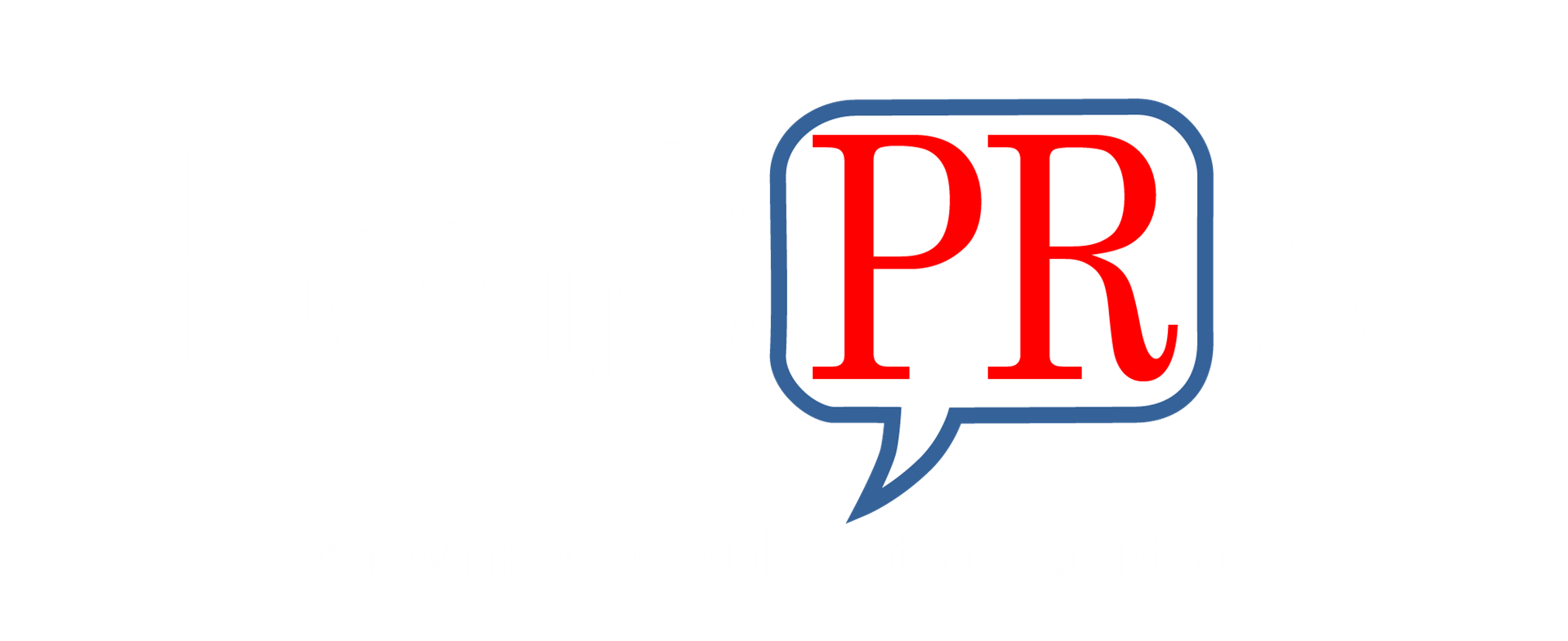Message from Secretary & Program Co-Chair (East/Central) Chris Rosenblum
As a journalist and the State College Area School District communications director, I have told thousands of stories. Many have recounted courage and initiative, others resilience, creativity, triumph, and even sorrow. Most of my professional career, in fact, has been devoted to conveying the experiences of others, drawing readers into different worlds, momentarily transporting them from their own. I have felt privileged to be a storyteller, to be entrusted with sharing narratives. You should feel honored as well in your role with your schools or school districts. More on that later, but first, allow me to tell some of my own story, starting in Lincoln, Massachusetts.
From an early age, I was an avid reader, the kid perfectly content to while away a quiet afternoon curled up with a book. Stories fascinated me, the way they could spark my imagination and take me from my Boston suburb and place me in intriguing lands and circumstances. History had the same effect, and in fact, I considered the accounts I soaked up to be an almost infinite collection of riveting tales. Lucky for me, my town had a cozy, well-stocked library that I loved to visit and to this day fondly remember. My affinity for history moved with me to Virginia for my teenage years, but I also discovered newspapers. I saw them as daily portals into the full spectrum of human existence, from the peaks to the depths, and I loved poring through them section by section, each page pulling me into someone else’s life and expanding my knowledge, not to mention blackening my fingers.
At Brown University, I followed my heart to a history degree, dabbling a bit in the student newspaper. My true entry into journalism came after graduation and two years of teaching English in Japan. At a loss about what to do next, I decided to try reporting and answered an ad for a sportswriter on a small weekly paper. That I had never written a sports story before didn’t faze me. I had read reams of them, so I figured I could do a fair imitation. Possessing more confidence than ability, I talked my way into a job, the start of a 23-year journey in newsrooms covering, at different stages, sports, news, and features. My favorite moments came when I could be a storyteller taking readers into different settings — up in a glider, through a Vietnam jungle, beside a child with a rare disease — to broaden their horizons. In those instances, I felt a great responsibility as the conduit. If I didn’t get it right, readers wouldn’t fully know what had been achieved, survived, or overcome. How did I know I got it right? People would tell me they became so immersed in a story, they lost track of time. I’d hear that a story made someone stop and think. Rarely, but best of all, a story would wind up framed, preserved behind glass as a treasured memento by a family member or friend.
Ten years ago, I switched to school communications, recruited by a superintendent looking for a more journalistic approach to sharing his district’s success stories. I’ve followed that mission ever since, shifting my reporting to taking our community into classrooms, science labs, band rooms, and culinary arts class kitchens, introducing them to incredible students, teachers, and staff members. The basic idea hasn’t changed from my newspaper years; when you focus on people and descriptions and tap into our elemental love for an engrossing narrative, you build an emotional connection and the content tends to resonate more with readers. It’s an effective way of enlisting support for schools and public education, but I realize it can get buried by our blizzard of duties. Emails to families. School board memos. Social media blurbs. Crisis situations. With all of that on our plates, it’s easy to overlook stories and their power to engage the public and illustrate your district’s best qualities. Don’t let that happen! Look for the innovative teacher who represents your faculty’s excellence. Find the student who embodies the intellectual curiosity your schools seek to nurture. Highlight the dedicated counselor or cafeteria worker who exemplifies your caring climate. As the fiction class mantra goes: Show, don’t tell.
So go ahead, embrace your role as a storyteller, for we’re fortunate to occupy a special position. We get to satisfy our inner child drawn to stories while serving both as the historian recording them for posterity and the reporter informing the community.
In doing so, we’re bound to create happy endings.
Sincerely,
Chris Rosenblum
Director of Communications
State College Area School District
jcr19@scasd.org

